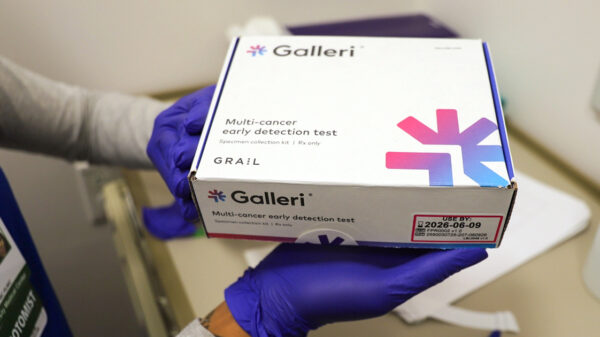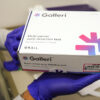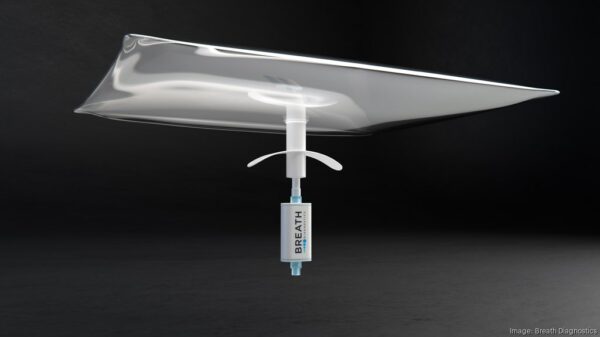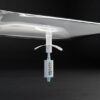Physics and engineering researchers from Jahangirnagar University have been developing a novel lung cancer breath testing technique.
On Oct. 7, they published a study on their aluminum-derived nanotube-based model for early lung cancer detection in the Nature journal Scientific Reports. The Bangladesh Scientists are also affiliated with Rensselaer Polytechnic Institute in New York, the Florida Institute of Technology and the University of California.
“Owing to the success of gas-sensing technology, this work proposed a novel work of developing sensors to diagnose lung cancer by analyzing the adsorption mechanism of three common volatile organic compound biomarkers,” they explained in their article, “acetaldehyde, aniline, and isoprene.”
For their analysis, they used two aluminum-derived nanotube sensors comprised of aluminum nitride and aluminum phosphide. A quantum mechanical approach Density Functional Theory (DFT) method was utilized to assess their efficacy.
“The adsorption energy confirms all the biomarkers will successfully adsorb on the aluminum nitride nanotube and aluminum phosphide nanotube with an exothermic chemical reaction,” the authors explained.
However, they discovered that the aluminum nitride nanotubes were nearly 30 per cent more useful for doing so through a heat-releasing chemical reaction than the aluminum phosphide sensors.
“Based on the light of all factors, aluminum nitride nanotubes could be a potential candidate for developing biosensors to diagnose lung cancer in its early stages,” they concluded.
Although this early-stage research will require follow-up studies, it highlights the potential of using advanced sensors to detect lung cancer and other diseases in breath samples when they are most easily treatable.
The world’s most widely used diagnostic tools for lung cancer are unfortunately flawed in multiple regards. Low-dose CT scans, X-rays and tissue biopsies, for instance, expose patients to radiation, provide false positives, are costly and invasive.
“Owing to the successes of analytical chemistry and nano-sensing technologies, diagnosing different diseases by analyzing the breath of patients has become popular because of its non-invasiveness, rapidity, and cost-effectiveness,” the authors highlighted.
Read more: Breath Diagnostics leaders promote their mission at Miami investment conference
Breath Diagnostics leads the way in North America
One particular company in the United States has developed a lung cancer breath test that has been studied much more extensively. It has demonstrated a high rate of efficacy in multiple clinical studies with over 800 patients.
Breath Diagnostics aims to make its OneBreath screening tool commercially available while helping to revolutionize lung cancer screening. It has the potential to save numerous lives and save healthcare providers considerable amounts of money.
Furthermore, it overcomes the detrimental flaws of current screening modalities.
Like the screening method being assessed by the investigators in Bangladesh, OneBreath examines the volatile organic compounds present in breath samples to detect the disease.
Breath Diagnostics’ Chief Medical Officer, Victor van Berkel, is one of the world’s top lung transplant surgeons. This esteemed medical professional and the company team are passionate about their particular medtech focus.
Currently, Breath Diagnostics is in the midst of completing a fundraising campaign. Investors have the opportunity to hold a stake in a private company with a noble mission and significant growth potential. Over US$621,000 has already been invested through this initiative.
UK-based Owlstone Medical, and Canadian medical technology operator Breathe BioMedical, are notable competitors pursuing their own variations of lung cancer breath analysis devices.
Read more: Breath Diagnostics adopts state-of-the-art mass spectrometer device for lung screening
Follow Rowan Dunne on LinkedIn
rowan@mugglehead.com














